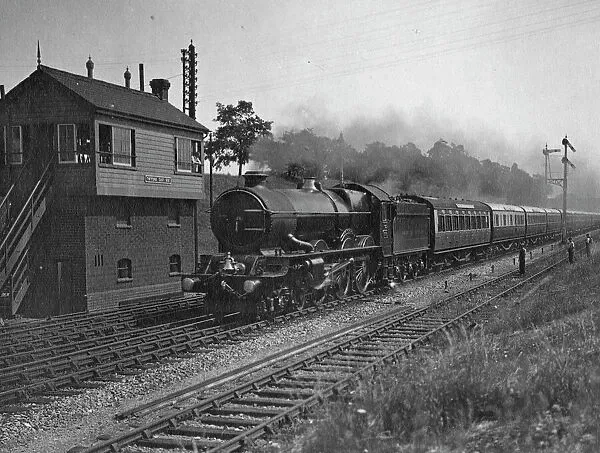Enemy Agent, Concientious Objector, Refugee or...?
After three full tours of duty and four and a half years in West Africa, Edgar Whitehead was asked to return to West Africa for another tour with the promise of full Colonel in Lagos after twenty-eight days leave in Rhodesia.

Edgar thanked his Brigadier, but said, "I'm determined to go back to Europe. I want something more active than an administrative post in a backwater, removed from active operations."
"You will revert to your War Substantive rank of Major and find it very difficult to get employment. Remember, you have been separated from your own Corps since April, 1941 when you were only a Subaltern." However, a recommendation for further promotion to Full Colonel was posted in Edgar's 'Record of Service.'
On disembarkation, he immediately reverted to the rank of Major. It was hinted that he had been a fool not to have stayed in West Africa. The WO advised him there were few vacancies but instructed Edgar to report directly on expiration of his twenty-eight day leave.
Advised that uniform need not be worn on leave, Edgar found the English spring bitterly cold. His elder brother was stationed in a prohibited area. His sister, Frances, was working such long hours at Scotland Yard that he did not see her during the day. His younger brother, Hugh, was working in the de Havilland Aircraft Factory Laboratory and was also only free in the evenings. He spent a few days with his cousins in Berkshire but was quite glad when his leave was over and reported to the War Office.
He was informed they had no posting yet. He was free to continue his leave on twenty-four hour notice of recall, but was instructed to leave his telephone number. Unable to plan ahead ruled out his seeking hospitality from friends and family. Briefed not to stray far from London, he found a hotel at Twyford near Reading within walking distance of the Station.
Twyford was to prove to be a very important period of his life. The hotel was occupied mainly by London business people who went to their offices daily, leaving their families in the hotel as the flying bombs had made London undesirable for children. The hotel Manager and his son were the only two people who knew who he was as he had warned them that the WO might ring at any time to order his next move. He could not, therefore, give them any idea of how long he would stay. It turned out he stayed there for seven weeks.
He settled down to a routine. The bedroom was spacious with a writing table. Every morning after breakfast he wrote his ideas on what post-war economic policy for Southern Rhodesia ought to be. After lunch, at two o'clock, he set off for a hard walk till half past five or six as he expected his next posting to be with an active R.A.S.C. Unit so it was essential to keep fit. On return he changed into a suit and went to the bar for his evening ration of two pints of beer, followed by dinner and an early bed with a book.
Once a week he went to London to Rhodesia House to take his manuscript for typing as the High Commissioner knew he was writing his views for Huggins and had placed his staff and library at Edgar's disposal. While there he met many Rhodesian Officers, mostly RAF, and discussed his ideas with those interested.
Absorbed in his work he raced to get his thesis finished before being recalled. Not wanting to get distracted he never spoke to any of the hotel guests except to say 'good morning' and 'good evening'. None of them knew he was in the Army. He had locked all his military equipment in a stout cupboard as it included his pistol and ammunition. So even in the event of one or two surreptitious visits to his room when he was out failed to breach his incognito.
After a few weeks the Manager told Edgar more and more speculation was growing amongst the guests about his identity. Theories abounded. Was he an enemy agent, a conscientious objector, an alien refugee, or...??? The manager kept him up-to-date with each new development.
His work progressed steadily. Finally he had a detailed policy for Rhodesia to attract massive immigration, diversification of industry, the financing of a nine percent growth without balance of payment difficulties, taxation reform, Civil Service reform, lists of new industries which Rhodesian conditions suited, and the mechanics to bring all the schemes to fruition. By the end of May, Rhodesia House typed the last section and it was sent off to Huggins in the Diplomatic Bag.
(After the war Edgar was able to put every idea into practice with the exception of producing oil from coal at Wankie.)
On June 2, 1944, Edgar went for his usual walk. On return at about five-thirty the Manager intercepted him saying he must ring the WO at once.
The Posting Officer said, "Can you get away on the train at 2030 to Shrivenham? I know we promised you twenty-four hours notice but this is urgent."
Edgar said, "Quite easily, Sir."
"You'll be met at the Station and taken to the camp of the 48th Air Dispatch to whom you are being attached."
Edgar changed into his uniform and came downstairs at about 1830 with full equipment including pistol and tin hat. After parking the accessories in the office and arranging transport for his heavy kit to the station, he went into the crowded bar.
There was a stunned silence for a moment before one of the foremost rumor-mongers turned to Edgar and said, "Why didn't you tell us?"
Edgar was forgiven. He was not allowed to pay for a drink until the train left.
The historical novel Whitewashed Jacarandas and its sequel Full of Possibilities are both available on Amazon as paperbacks and eBooks.
These books are inspired by Diana's family's experiences in small town Southern Rhodesia after WWII.
Dr. Sunny Rubenstein and his Gentile wife, Mavourneen, along with various town characters lay bare the racial arrogance of the times, paternalistic idealism, Zionist fervor and anti-Semitism, the proper place of a wife, modernization versus hard-won ways of doing things, and treatment of endemic disease versus investment in public health. It's a roller coaster read.
References:
- Sir Edgar Whitehead's Unpublished Memoirs, Rhodes House, Bodleian Library, Oxford University, by permission.
- Photo credit: Wikimedia Commons, the free media repository.



